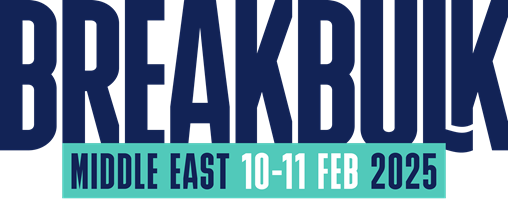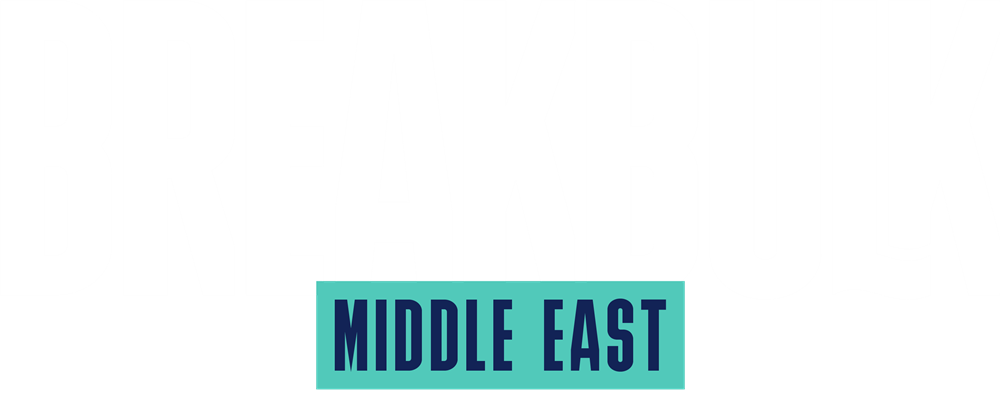Aug 05 | 2020
It’s no secret Covid-19 has hit oil prices hard, but the Middle East is oil and gas country.
Here, there remains good prospects for project cargo and breakbulk companies. Several multibillion-dollar developments are going ahead.
The cargo carrying contract potential remains steady. Here’s why.
Some US$46 billion in hydrocarbons products are to go ahead throughout the Middle East region from 2020 onwards, including the single largest energy deal of the year has been signed in Abu Dhabi.
The Abu Dhabi National Oil Co., or ADNOC, announced in June that an international consortium has signed an agreement worth US$20.7 billion to invest in the emirate’s domestic gas pipelines.
This is a major vote of confidence in the UAE’s oil and gas sector.
“ADNOC’s gas network is a core piece of midstream infrastructure in the UAE, and this transaction presents a unique opportunity to invest in an asset of this quality and importance, while also supporting ADNOC in their smart growth strategy,” Adebayo Ogunlesi, Global Infrastructure Partners, one of ADNOC's partners in the deal, told Breakbulk.
“It solidifies ADNOC’s position as an attractive partner and reinforces the UAE’s track record as the region’s go-to foreign direct investment destination, even during the current unprecedented circumstances,” said His Excellency Dr. Sultan Al Jaber, UAE minister of state and ADNOC Group CEO.
Elsewhere, we can turn to Saudi Arabia for further confidence. Its US$25.6 billion Yanbu oil-to-chemicals complex, spearheaded by Aramco and SABIC, its premier petrochemical development.
The project will involve construction of a full oil refinery and three crackers to process the crude derivatives into intermediate chemicals, which will be fed into downstream processing facilities that are also to be constructed as part of the complex.
KBR, a Breakbulk Masters member and world-leading EPC, will provide Yanbu’s pre-FEED and FEED works. The project will be executed from KBR's Houston, Al-Khobar and Chennai offices and is expected to continue through to the start-up of the facility in 2025.
Assiut Hydrocracking Complex in Egypt is another high-ticket development. TechnipFMC has won a US$2.5 billion construction contract for this petrochemical facility, which will become the largest oil refinery in Upper Egypt.
Activity is still happening in the Middle East’s most important energy-based economies. With that comes a demand for moving heavy equipment, machinery and components – something only project cargo companies can deliver.
As well as domestic commitment, international attention is still heavily focused on Middle Eastern energy development. The central pillar of its latest investment agreement with Iran and China is oil and gas.
Petroleum Economist reports that, across five years, China will invest US$280 billion in Iranian hydrocarbons development.
As part of its investment program, China has stipulated that its native companies will be given the first refusal to bid on any new, stalled or uncompleted oil and gas field developments. Chinese firms will also have first refusal on opportunities to become involved with any and all petrochemical projects in Iran, including the provision of technology, systems, process ingredients and personnel required to complete such projects.
In Dubai, the ADNOC pipeline deal represents foreign investment of some US$10 billion in capital from Global Infrastructure Partners, Brookfield Asset Management, Singapore’s sovereign wealth fund GIC, Ontario Teachers’ Pension Plan Board, NH Investment & Securities and Italy’s Snam, one of the world's leading energy infrastructure operators.
Foreign cash is still being pumped into the region when it comes to hydrocarbons development.
While the EPC side of oil and gas-specific projects is of major interest to breakbulk logistics providers, the industry is stimulating activity in other areas where project cargo can play a role.
In Saudi Arabia, Aramco is leading a joint venture of international shipbuilding and offshore firms to build the King Salman International Complex for Maritime and Services in Ras al Khair.
With an area of 11.4 million square meters, the King Salman complex will have the world’s largest ship lift; the world’s largest combined lift capability over a drydock, at 2,150 tonnes; and the largest total drydock area and quayside in the Middle East and North Africa region.
The yard will have a designed capacity to manufacture four offshore rigs and more than 40 vessels, including three very-large crude carriers (VLCC), and to service more than 260 vessels annually.
Infrastructure projects such as the above are key to the ongoing development, and generation of cargo contracts, of oil and gas throughout the region.
Breakbulk Middle East is where the project cargo opportunities are, as well as the region’s largest gathering of sector professionals.
2021’s event is even more important given the big changes Covid-19 has made to global logistics. Here’s why:
Want in on the action? Book your stand and become a Breakbulk exhibitor.
If you have further questions or queries on how we can help you during these interesting times, please contact us.
The cargo carrying contract potential remains steady. Here’s why.
Middle East oil & gas update
Key projects still go ahead
Some US$46 billion in hydrocarbons products are to go ahead throughout the Middle East region from 2020 onwards, including the single largest energy deal of the year has been signed in Abu Dhabi.
The Abu Dhabi National Oil Co., or ADNOC, announced in June that an international consortium has signed an agreement worth US$20.7 billion to invest in the emirate’s domestic gas pipelines.
This is a major vote of confidence in the UAE’s oil and gas sector.
“ADNOC’s gas network is a core piece of midstream infrastructure in the UAE, and this transaction presents a unique opportunity to invest in an asset of this quality and importance, while also supporting ADNOC in their smart growth strategy,” Adebayo Ogunlesi, Global Infrastructure Partners, one of ADNOC's partners in the deal, told Breakbulk.
“It solidifies ADNOC’s position as an attractive partner and reinforces the UAE’s track record as the region’s go-to foreign direct investment destination, even during the current unprecedented circumstances,” said His Excellency Dr. Sultan Al Jaber, UAE minister of state and ADNOC Group CEO.
Elsewhere, we can turn to Saudi Arabia for further confidence. Its US$25.6 billion Yanbu oil-to-chemicals complex, spearheaded by Aramco and SABIC, its premier petrochemical development.
The project will involve construction of a full oil refinery and three crackers to process the crude derivatives into intermediate chemicals, which will be fed into downstream processing facilities that are also to be constructed as part of the complex.
KBR, a Breakbulk Masters member and world-leading EPC, will provide Yanbu’s pre-FEED and FEED works. The project will be executed from KBR's Houston, Al-Khobar and Chennai offices and is expected to continue through to the start-up of the facility in 2025.
Assiut Hydrocracking Complex in Egypt is another high-ticket development. TechnipFMC has won a US$2.5 billion construction contract for this petrochemical facility, which will become the largest oil refinery in Upper Egypt.
Activity is still happening in the Middle East’s most important energy-based economies. With that comes a demand for moving heavy equipment, machinery and components – something only project cargo companies can deliver.
International investment Middle East oil & gas
As well as domestic commitment, international attention is still heavily focused on Middle Eastern energy development. The central pillar of its latest investment agreement with Iran and China is oil and gas.
Petroleum Economist reports that, across five years, China will invest US$280 billion in Iranian hydrocarbons development.
As part of its investment program, China has stipulated that its native companies will be given the first refusal to bid on any new, stalled or uncompleted oil and gas field developments. Chinese firms will also have first refusal on opportunities to become involved with any and all petrochemical projects in Iran, including the provision of technology, systems, process ingredients and personnel required to complete such projects.
In Dubai, the ADNOC pipeline deal represents foreign investment of some US$10 billion in capital from Global Infrastructure Partners, Brookfield Asset Management, Singapore’s sovereign wealth fund GIC, Ontario Teachers’ Pension Plan Board, NH Investment & Securities and Italy’s Snam, one of the world's leading energy infrastructure operators.
Foreign cash is still being pumped into the region when it comes to hydrocarbons development.
Oil & gas industry stimulates activity in other areas
While the EPC side of oil and gas-specific projects is of major interest to breakbulk logistics providers, the industry is stimulating activity in other areas where project cargo can play a role.
In Saudi Arabia, Aramco is leading a joint venture of international shipbuilding and offshore firms to build the King Salman International Complex for Maritime and Services in Ras al Khair.
With an area of 11.4 million square meters, the King Salman complex will have the world’s largest ship lift; the world’s largest combined lift capability over a drydock, at 2,150 tonnes; and the largest total drydock area and quayside in the Middle East and North Africa region.
The yard will have a designed capacity to manufacture four offshore rigs and more than 40 vessels, including three very-large crude carriers (VLCC), and to service more than 260 vessels annually.
Infrastructure projects such as the above are key to the ongoing development, and generation of cargo contracts, of oil and gas throughout the region.
Breakbulk Middle East supports the region’s oil & gas industry
Breakbulk Middle East is where the project cargo opportunities are, as well as the region’s largest gathering of sector professionals.
2021’s event is even more important given the big changes Covid-19 has made to global logistics. Here’s why:
- It’s the place where networking gets done and relationships are reinforced – vital in these trying times.
- Taking place Feb. 9-10, 2021, the event is perfectly timed to relaunch your business and strengthen your fiscal year 2021 forecasts
- Government leaders, private-sector oil and gas companies are here too – the people that decide your next contract.
Want in on the action? Book your stand and become a Breakbulk exhibitor.
If you have further questions or queries on how we can help you during these interesting times, please contact us.


